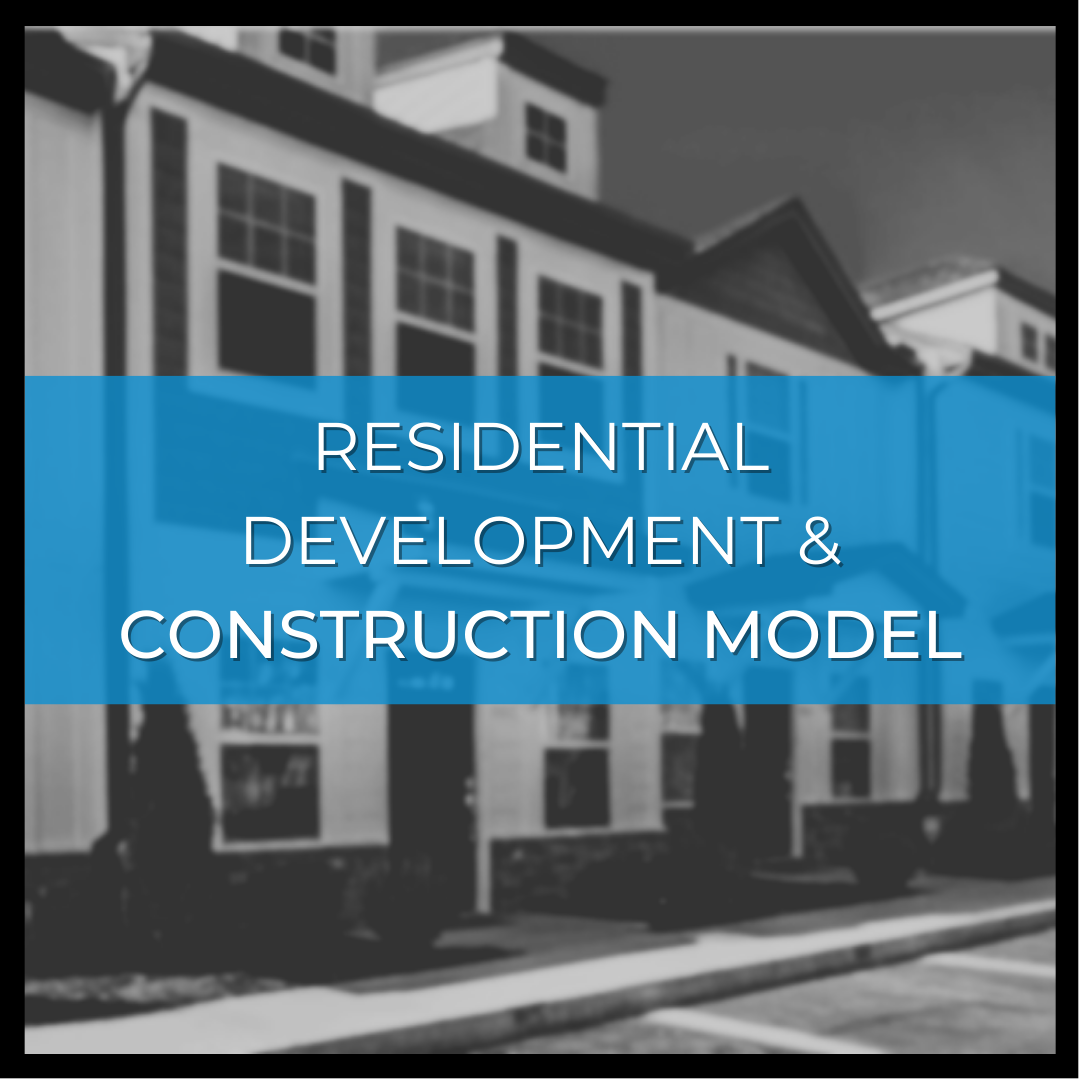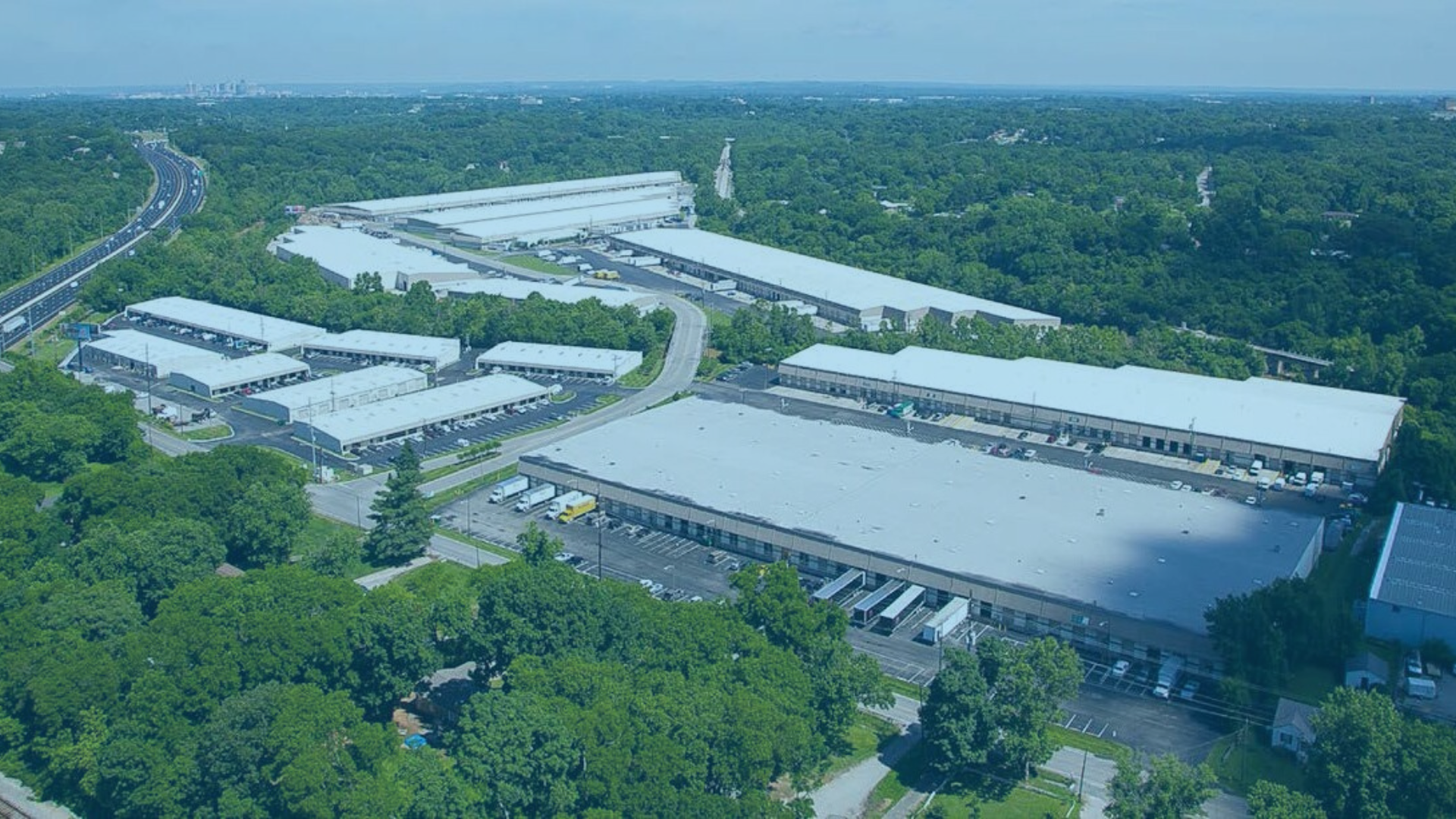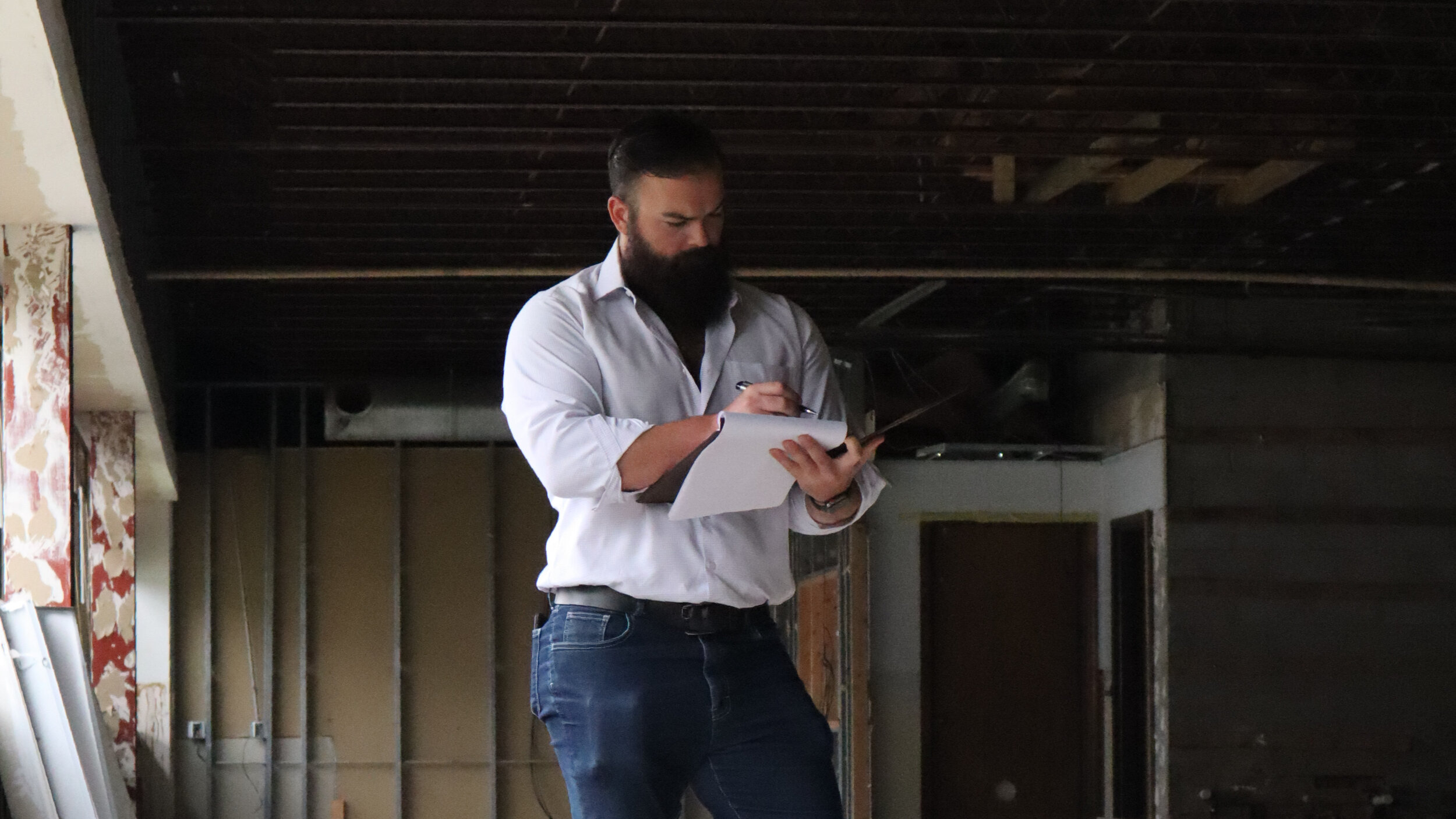How to Get into Commercial Real Estate Investing
If I Had to Start All Over
I’ve been in commercial real estate since 2013 but only really started investing in 2019, after founding my own commercial brokerage.
Since then, I’ve developed a 42-unit townhome community, acquired over 50,000 square feet of office and retail space, and am in the middle of a $19.2 million mixed-use development in East Nashville.
And I get asked all the time: “How can I get into commercial real estate investing?”
So, knowing what I know now, here’s what I would do if I had to start it all over.
I’d Get My Real Estate License
Getting my real estate license really opened the door to my investing career.
I spent years learning the ins and outs of leasing and managing commercial real estate, which is critical to your success as a commercial real estate investor.
After all, if you don’t know how to find tenants for your space or manage the brokers that do, you’ll experience higher-than-average vacancy rates and your investment won’t perform. The same goes for management - if you’re unable to properly navigate the day-to-day, you won’t be able to maximize your income and maintain the property to its highest potential.
Having my real estate license also allowed me to make money while I learned about the investing side of things.
Not only was I making commissions helping investors stabilize and manage their properties while learning how they operated, but I was also able to utilize my commissions to fund my first investments.
Because commercial brokers can get a commission on purchases, I bought my first commercial property with no money (technically) since I was able to roll my commission into the down payment and brought investors in to cover the rest.
I Would Work for A Boutique Developer / Firm
Boutique development and investment companies simply take a different approach to commercial real estate than the bigger shops.
They’re more opportunists, meaning they’ll take on any type of project as long as it makes financial sense.
I started off working as the in-house leasing agent for a boutique development firm in Nashville and was able to work on:
Office
Retail
Industrial
Multifamily
And Single-Family Customs
So, in my time with that firm, I was exposed to value-add projects, new construction, leasing high vacancy properties, managing stabilized assets - you name it, I got the experience.
And since the firm was smaller, I was sitting in on the weekly development meetings, which gave me the knowledge of how to put together and run development projects.
Had I gone to a larger commercial real estate brokerage or a regional / national development firm, I would’ve been pigeon-holed into being the single-tenant net sales broker or into working only on multifamily development.
Not that there’s anything wrong with either of those by any means, but I wouldn’t be in the position where I am now to take advantage of a value-add office tower in Chattanooga while developing micro-units in East Nashville.
Working with a boutique firm gave me the opportunity to learn (and on someone else’s dime) how to pull together investment and development projects in a variety of asset types and classes.
I’d Be Intensely Strategic about Networking
I didn’t really start networking until my third year in the business. That year, I tripled my income and made six-figures for the first time.
My first couple of years in the business, I spent 100% of my time cold calling and door knocking. Not that there’s anything wrong with that, by any means, but I’ve found networking to be far more fruitful - especially if you’re able to brand yourself and your business.
They say that “your network is your net worth,” which makes sense - the more people you know (or that know you) the more opportunities you’ll have to do deals.
So networking with as many other professionals in the industry as possible will help you earn a higher income when first getting started and will give you a head-start when you jump into investing or developing.
These contacts:
Could assist you with your projects, such as a real estate attorney or architect
Could bring you opportunities, such as commercial real estate wholesalers or other brokers
Or could even be investors in your deals
It takes time to build trust with others and to surround yourself with a team that you can trust, so take this time before you’re in the middle of a project to network and build those relationships.
Key industries you’ll want to network with include:
Architects
Attorneys
Commercial Brokers
Developers
Engineers
General Contractors
I’d Take Advantage of Educational Opportunities
Commercial real estate education can be hard to come by.
There just don’t seem to be very many resources available out there for newcomers like you’ll find in residential real estate or other industries.
However, if I had to do it all over again, I’d dive into those offerings that are available out there and work to become the most knowledgeable in my chosen field.
Get My CCIM Designation
CCIM (Certified Commercial Investment Member) is an organization that provides investment education for anyone interested in commercial real estate.
These classes are largely taken by brokers, but it’s not uncommon for lenders, property managers, and anyone that interacts or invests in commercial real estate to go through with their designation.
You’ll be learning how to underwrite investments, analyze markets, negotiate, and more.
Getting your CCIM is expensive - I definitely won’t try to sugarcoat that. Each class can range from $1,500 to $2,000, and that’s before travel and board!
However, the knowledge you’ll gain and the resources you take away will bring you far more than that.
In fact, shortly after I completed my CCIM 104 class, I was able to underwrite an investment opportunity for a client in Chattanooga for over $1.8m, on which the commissions, alone, covered the cost of all of my classes and some.
Dig into Books and Podcasts
There are a handful of books that are, in my opinion, must-reads for the newcomer to commercial real estate.
I won’t dive too far into them, since we put together a list of the best books on commercial real estate, but they are packed with knowledge that will, at the very least, expand your thinking.
And don’t even get me started on podcasts!
I’m constantly amazed by the amount of content that is coming to the market now that wasn’t available when I first kicked off my career.
There are a number of incredible shows out there covering all aspects of commercial and multifamily real estate. Shameless plug - check out my show with The Apt Guy, Bruce Petersen: Commercial Conversations Over Coffee.
Follow Blogs and YouTube
Each week, I’m releasing new content on my blog and YouTube channel to educate my audience on how to invest in commercial real estate.
No matter which aspect of commercial real estate you’re interested in - whether it be value-add office space all the way to multifamily development - there’s a blog out there for you.
There’s also a growing number of creators offering video content on YouTube, too, which I feel will continue to become more and more popular with each passing week. After all - it’s far easier to watch a quick five minute video explaining some aspect of CRE than it is sometimes to read a blog about it.
I Would Join a Real Estate Mastermind
Joining a mastermind was certainly a pivotal moment in my journey.
I was already headed in the right direction, but it catapulted my career.
Why?
Because I was surrounded by the best of the best - the most knowledgeable and successful individuals in the business world. I was able to learn directly from investors and developers that were already where I wanted to go, which is the best way to learn commercial real estate, in my opinion.
That’s how I got connected to Bruce Petersen, who is now my business partner.
He and I met at a mastermind in Austin, TX where he was giving a talk on how to syndicate multifamily real estate. I was instantly intrigued because I’d never even heard of multifamily syndication before, so I went up to him after the talk to pick his brain.
Here we are three years later on the hunt for our next project!
Joining a mastermind also pushed me to become a better person in every aspect of my life. You become the people by whom you’re surrounded. And since I was surrounded by a number of successful entrepreneurs that had written a book, I wrote a book!
That’s also where I picked up some of the most productive habits I have today, including my early morning routine and my affinity for writing.
I’d Become a Specialized Generalist
In commercial real estate, it’s not uncommon to get pushed into a hyper-specialized niche, such as single-tenant net investment sales or industrial tenant rep.
Now, obviously I’m coming from a broker’s perspective here, but I said my first step would be to get my real estate license so we’re rolling with it.
In some cases, it makes sense to niche down to this extreme - if you want to be the go-to broker for single-tenant net investment sales, you should focus solely on becoming the best at that position and nothing else. If that’s your chosen career path, then it will be very difficult for other brokers to compete with you after a few years.
However, I subscribe to Tim Ferriss’ philosophy on becoming a specialized generalist. Niche down, but add in something else that really makes you unique in a different way. Doing so will prevent you from going extinct should the market shift out of your favor and will help keep you nimble.
Here are two ways I’ve done this:
I’m a commercial real estate investor that started out in brokerage, so I bring a unique perspective to the table whenever I’m working with investor clients from out of state (which is quite often since Tennessee was the #1 state to relocate in 2020)
My commercial real estate brokerage, The Cauble Group, is boutique in the sense that we will work on office, retail, and industrial assets but we only work within East Nashville and the urban core
Note how my firm is really generalist - we will work on any type of commercial real estate asset, but it has to fall within our geographic boundaries, helping us specialize.
On the investment and development side of things, my team and I are able to tackle just about any project that comes our way, as long as it’s within that territory, since we know what our cost basis should be, what the project would rent or sell for, and how long the space might sit on market.
How can you become a specialized generalist?
I’d Find a Mentor and Partner
As I said earlier, the best way to learn the mechanics of commercial real estate is from a mentor that’s already where you want to be.
Just like anything in life, learning from those with experience can really help you get ahead instead of having to fight through every trial and error on your own.
And you likely won’t have just one mentor - there are different things you can learn from different business professionals at different points in their careers.
I have mentors that are several steps ahead of me on the ladder, some that control a billion dollars in assets, and some that are in completely different industries and bring a different perspective. It’s important to realize that you won’t just have one single mentor in your life.
And your mentor can also become a partner in your deals.
The first deal I ever did was a piece of dirt that I took to a developer with the intent of building townhomes on the site. That developer partnered with me on the project and showed me how to go about the development process, making it far easier for me to learn instead of having to do everything completely on my own from scratch.
When I wanted to start diversifying into multifamily, I began discussing that opportunity with Bruce. Whenever I find an apartment complex we want to buy, he’s involved from the very beginning because he’s far more knowledgeable than I am in that field and really knows how to get it done.
I Would Underwrite A Deal a Day
It wasn’t until I committed to underwriting every deal I came across, even if I didn’t think it would be of interest, that I began to really understand the numbers on a different level.
I think I got this one from Brandon Turner at BiggerPockets - underwrite a deal every day and send an offer out each week.
The year that I really committed to this process, I purchased four buildings. The year before that I had zero.
It took me 5 years to get to that point, though. 5 years of brokering deals and helping other investors make all of this money before I realized that if I had a better grasp on how to model out investments that I could increase my income and start buying deals for myself.
Underwriting a deal is far less complicated than many make it out to be.
You simply need to have a piece of software or spreadsheet that you like and you need to practice with it as much as possible - hence the “underwrite a deal a day.”
Below are the models that I use and here’s a video of how to underwrite commercial investments using the commercial model.
I’d Take the Leap Sooner
Like I said - I was just a commercial real estate broker for 5 years before I had finally built up the courage to jump into my own project. Think about that - 5 years making everyone else money!
I always felt like I needed to listen to one more podcast, read one more book, or ask a mentor one more question - then I would get it.
But the problem with that is that there’s always one more podcast or one more book. It’s just an excuse that kept me from facing the fear of a new challenge.
Now, to be fair, it’s difficult to really learn how to do a project until you’ve done one. The best way to get experience is by doing!
You just have to get out there and take that leap.
About The Author:
Tyler Cauble, Founder & President of The Cauble Group, is a commercial real estate broker and investor based in East Nashville. He’s the best selling author of Open for Business: The Insider’s Guide to Leasing Commercial Real Estate and has focused his career on serving commercial real estate investors as a board member for the Real Estate Investors of Nashville.



























Quickly determine if a deal is worth pursuing or not.